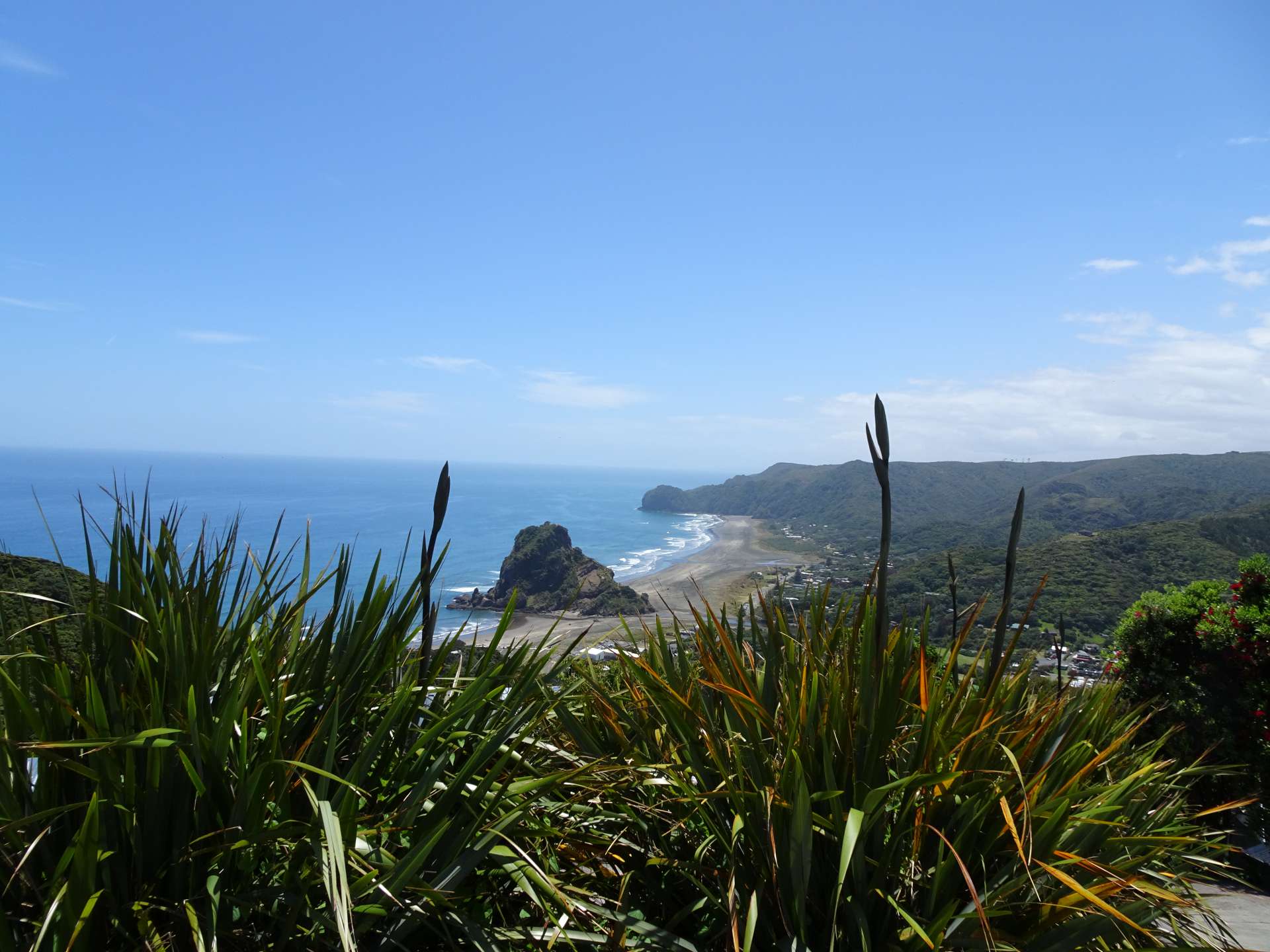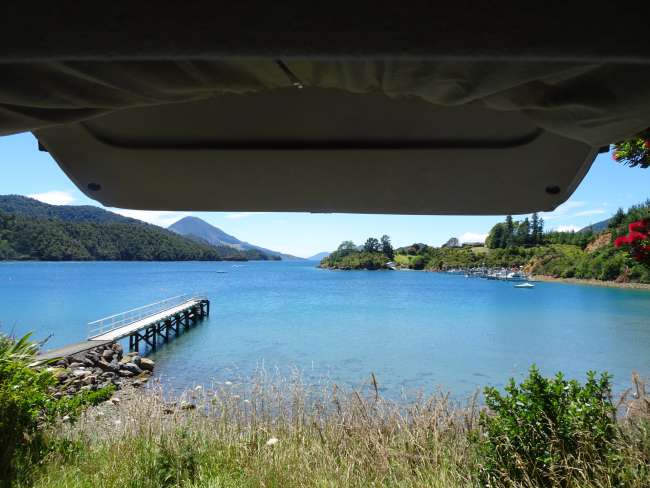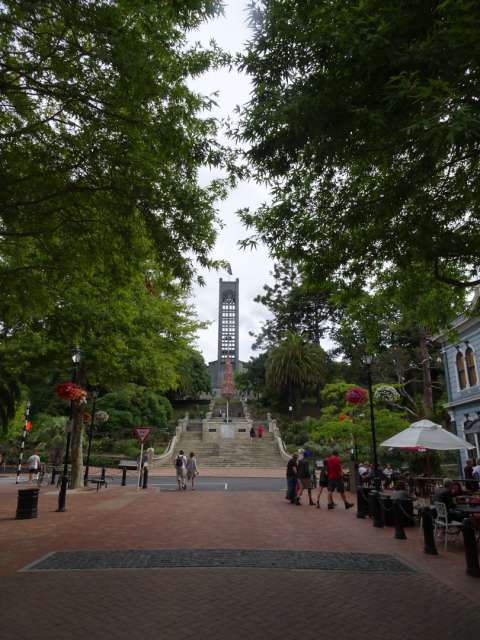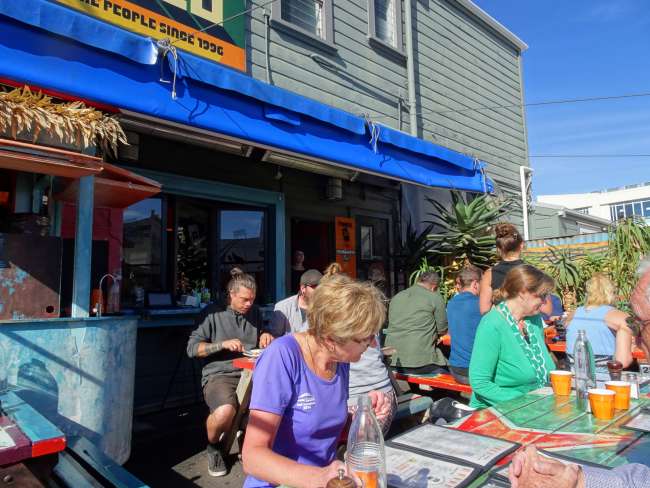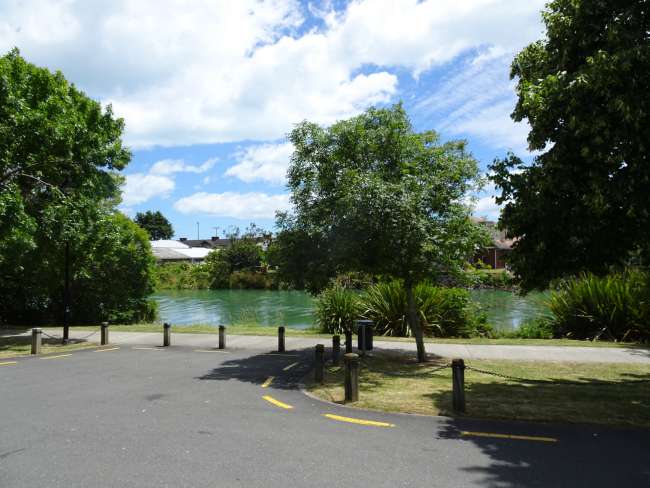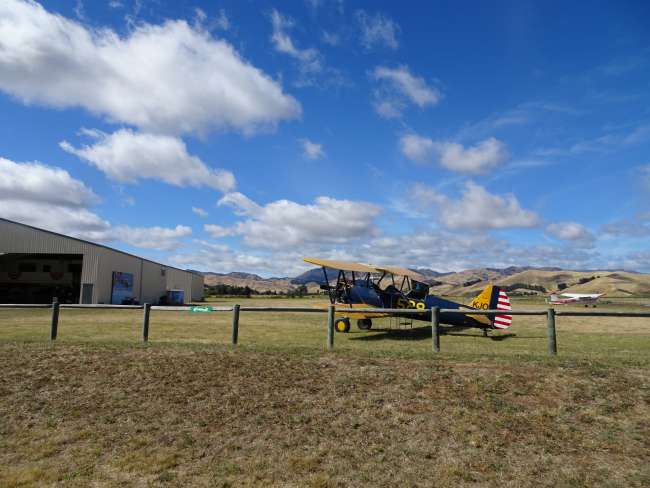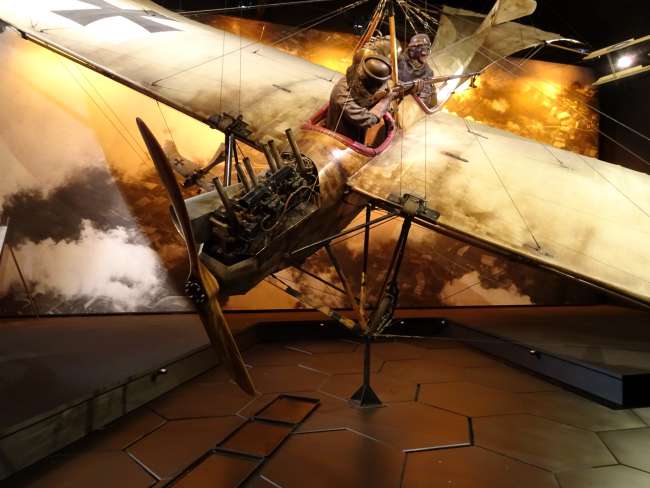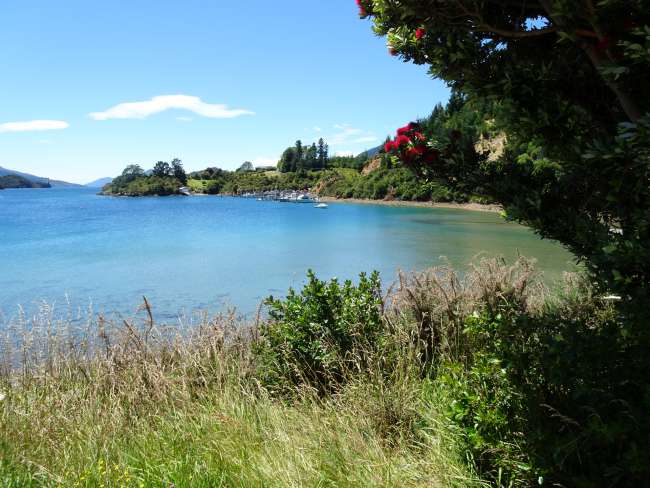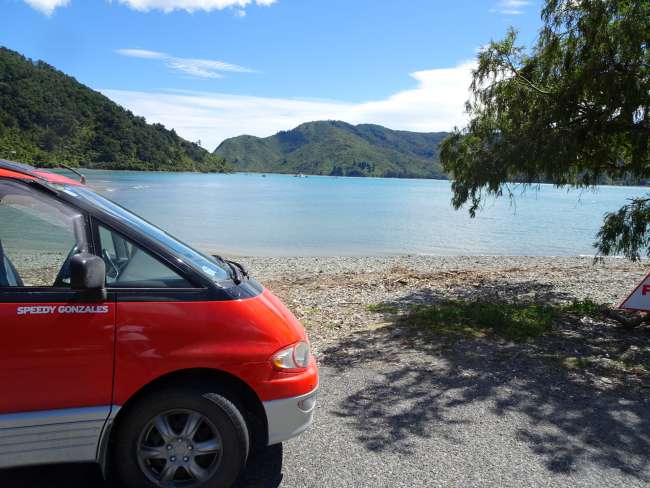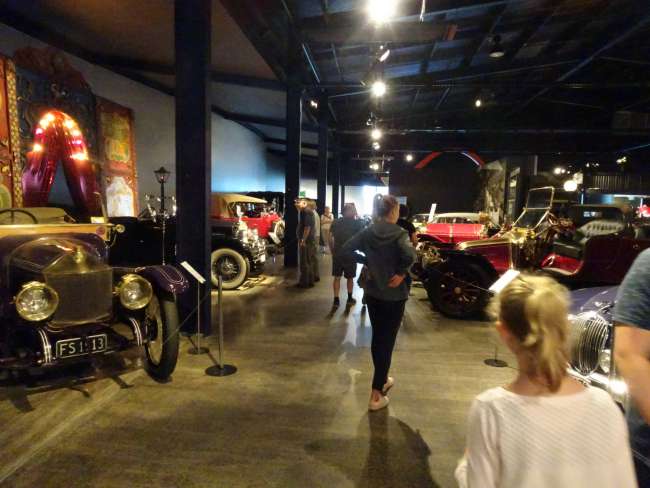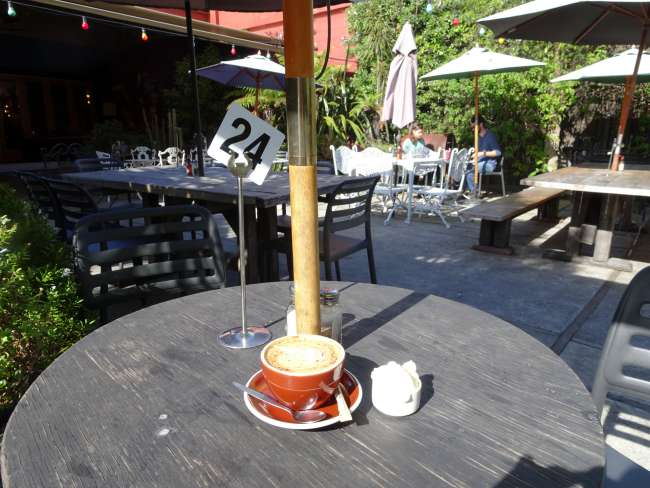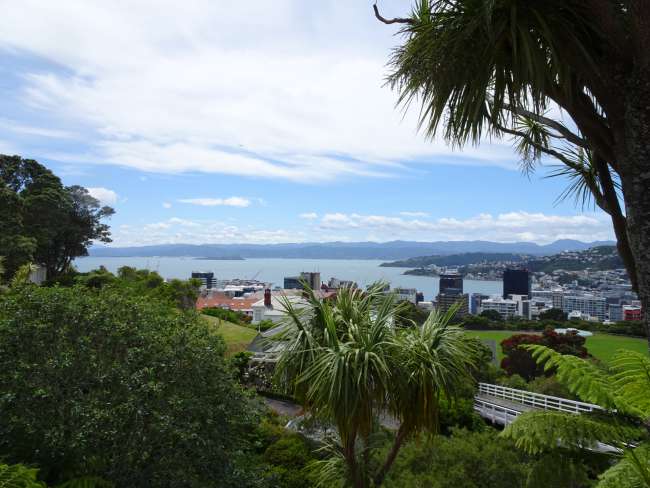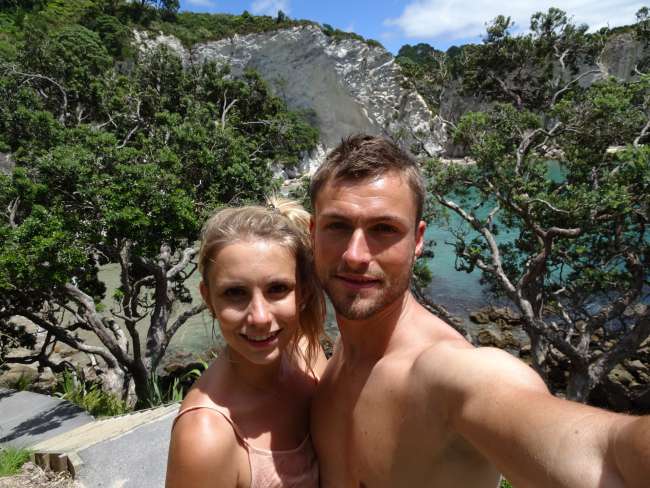
judithundwillaufentdeckungsreise
vakantio.de/judithundwillaufentdeckungsreise
Wellington and the first days on the South Island
Wotae: 13.01.2017
Wɔ Nudɔdɔ na Nyadzɔdzɔgbalẽ
Our last day on the North Island, we spent in Wellington, from where we took the ferry to the South Island in the evening. We had breakfast on Cuba Street, a lively street in Wellington, in a Cuban pub called Café "Fidel". After that, we took the Cable Car, a historic cable car that connects the residential areas in the hills with the busy waterfront area of the city. We visited the nice little Cable Car Museum there and walked back to the city through the wonderfully fragrant botanic garden, where we then visited the National Museum "Te Papa". The museum is well done and generously laid out, but unfortunately, it is somewhat one-sided in terms of its themes. While the natural history and geology of New Zealand are described in detail, and the societal development of the 20th century is also addressed, the colonization and settlement of New Zealand by the "Whites" is completely omitted. The expulsion of the Maori from their original habitats by the British Empire's military, the atrocities committed by the New Zealand Company, and the subsequent, no less violent, missionary work to convert the indigenous people are not addressed here. However, there is an impressive and very detailed exhibition about the New Zealand war heroes of World War I (in which New Zealand, as a supporter of the Australians, who were also supporters of the British as a Commonwealth country, played no visible role), which is one of the highlights of the Te Papa Museum. This leaves a bit of a dubious taste of a museum that is otherwise fantastic. (Free admission!!!)
Afterwards, we had a three-hour ferry ride to the South Island of New Zealand. The ferry was unexpectedly luxurious and spacious, so the time flew by.
Arriving on the South Island - it was already 11 pm - we set out to find a free place to stay overnight. After a very winding drive, the search ended up somewhere in the middle of nowhere, but right on the beach on a small lawn in Robin Hood Bay. From there, we started the next morning to Blenheim, where we visited a warplane museum that exhibited planes from World War I. There, a lot of attention was paid to Manfred von Richthofen, the "Red Baron," who - after shooting down 80 planes in 1 1/2 years and surviving countless air battles - was brought down by a bullet from a New Zealand infantryman. It's a really great aviation museum, whose exhibits were mainly restored and staged by Peter Jackson's set crew (director of the "Lord of the Rings" films). By the way, he is also the main sponsor and art director of the museum.
The next day, we drove to the Marlborough Sounds, a beautiful bay landscape with dense forests and turquoise blue sea. We found a free camping site right in a bay with a great view from the camper directly onto the sea, and spent the day sleeping and reading there. Pure relaxation.
We spent the next three days in Nelson, a slightly larger and beautiful city further towards the northern tip of the South Island. There, we visited the endlessly long beach, checked out an automobile and fashion museum, wandered through the Art Deco Cathedral with its small park, and spent a lot of time daydreaming in the cozy gardens of sweet cafes. One evening, we attended the South Island premiere of a New Zealand film called "The Catch" in a charming historic cinema, followed by a question-and-answer session with the producer/director and the main actor of the film. As a special moment of excitement, after about ten minutes of the film, there was a fire alarm due to the pizza oven in the attached pizzeria, including evacuation and New Zealand fire trucks.
New companions on the South Island are the sandflies, which have given us delightfully itchy bites everywhere we go, sometimes more, sometimes less. :)
Wɔ Nudɔdɔ na Nyadzɔdzɔgbalẽ
Ŋuɖoɖo

Mɔzɔzɔ ŋuti nyatakakawo New Zealand ƒe agbalẽ
